Growing up with emotionally immature parents can have many long-term effects on a child’s psyche and mental and emotional health. Were you brought up by emotionally immature parents? Then the following article will help you understand the long-term effects that adult children of emotionally immature parents suffer.
Emotionally immature parents? Has this led you to a dysfunctional or abusive relationship?
Most of us view parents as the mature ones, the grown-ups, particularly when we are kids. The ones who nurture and guide us to healthy adulthood.
But, what if you’re dealing with emotionally immature parents? Ones who are distant, rejecting, needy, negative, or self-preoccupied? What if a parent is emotionally immature? Forcing the child to become the parent in the relationship? Or, to come up with coping mechanisms? To deny the fear of never being good enough?
Related: Why Family Scapegoats Become Lifelong Victims
Emotionally Immature Parents
Emotional immaturity in parents can take many forms:
- Emotionally immature parents are those who are needy and whose moods fluctuate. The family walks on eggshells, as their behavior can be infantile.
- They’re like a child themselves, reacting emotionally, without thought to any consequences.
- They can’t control their impulses and everyone else is to blame. Or responsible for calming them down and their stability.
- Or there are those who are driven, always busy getting things done. They have all the answers. They know what’s best for everyone else, including their child.
- Emotionally immature parents fear their children will embarrass them if they don’t live up to their measure of success. They intervene in adult children’s lives. Even after the child has left home and is in a relationship.
- There are parents who do the opposite.
- They build a wall around themselves. They reject them.
- It’s as if their children don’t exist at all.
Their irritation towards their children teaches the kids to keep their distance from them. Immature men may fall into this category, ruling the home as the aloof and scary Dad. He may even doll out physical punishments to his children
Then there’s the passive, emotionally stunted parent. The one who acquiesces to the more dominant one (usually another emotionally immature adult).
- Emotionally immature parents may look after your physical health, feeding you and buying your clothes. But, your emotionally immature parent is so preoccupied with themselves they ignore your emotional needs
- They can’t see what you’re experiencing or feeling. They don’t express empathy, they can’t support you.
- Emotionally immature parents are uncomfortable with their own emotions or feelings. So, they won’t go there if you try to express yours. If you’re upset they’re likely to tell you – “You’re too sensitive.”
Or, make a sarcastic remark. Anything to change the subject.
- They are egocentric, single-minded, and have a low level of tolerance to stress. They like to be the center of attention and can be emotionally insensitive.
- Emotionally immature parents become defensive if you disagree with them. They get irritated if others have a different point of view.
- They don’t pay you any attention unless you’re sick.
- They’re inconsistent and unreliable. You walk on eggshells around them.
- Like a child, they erupt in emotional distress at the drop of a hat. The whole family runs around trying to work out what the problem is and how to fix it.
- They may be passive/aggressive towards you.
- They rarely accept blame or apologize for their behavior.
- They may become so enmeshed with you, they’re living through you and your achievements. Which never live up to their exacting standards.
- Emotionally immature parents may choose you as the ‘needy child’ they can rescue and control. Seeking their identity through an intense, dependent relationship with you. But it’s not a healthy adult child one.
- Or, they may deem you the ‘little grown-up’ that doesn’t need them. Ignore you, whilst focusing all their attention on your sibling.
Related: The 5 Child Roles In Dysfunctional Families
As a child of emotionally immature parents, you may feel:
- Anger: But, suppress it and turn it in on yourself. This may later manifest in depression, self-harm, or suicidal thoughts.
- As if you’re not being listened to. Your parent is insensitive to your feelings.
- Nothing is good enough to make your parent happy. Nothing you do is good enough either, nor are you.
- You can’t talk to them in an open and honest way. For fear they’ll minimize it with:
You’re too sensitive, too emotional.
Or dismissed with:
I can’t change who I am.
Emotionally Stunted
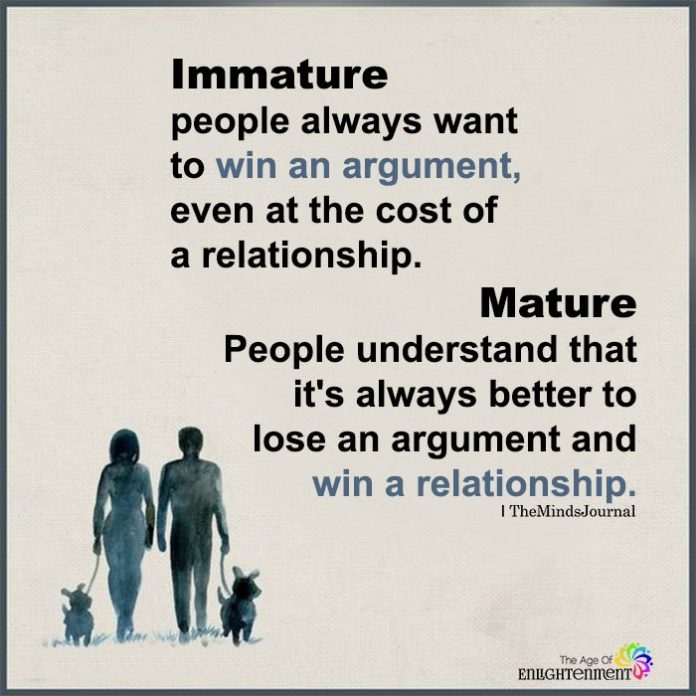
A child can’t see this for what it is. A parent who grew up emotionally stunted.
Perhaps they were from the: ‘children are seen and not heard’ generation like mine was? Their own childhood needs were never met and so they are incapable of nurturing yours.
There is no emotional intimacy. Someone you can tell anything to. Express feelings and emotions you have and feel safe doing so. Instead, you suppress them. Deny them. That’s how I felt as I grew up.
The Impact Of Growing Up With Emotionally Stunted Parents
This can lead you into dysfunctional, even abusive relationships in adulthood. I know that now.
I learned to become a ‘people pleaser’. To morph my behavior to keep the peace. To ignore my gut instincts. If I felt shame or upset, my mother told me I was wrong to feel that way.
As an adult, I was a chameleon, spouting opinions that weren’t my own. Taking on those of others who were more confident than me. I told them what I thought they wanted me to say and hear. I was always someone I was not. Forever hiding, in fear, that they’d find me out.
I didn’t even want to go into a relationship with my ex. I knew it was no good for me. But, I lacked the confidence to say no.
Related: 6 Kinds of Emotional Abuse by Narcissistic Parents
Besides, I had this fantasy in my head:
If I can love him enough, then he’ll become the man I need. The one who could fill that hole I had inside me.
I attracted needy people like him. But, I liked the role of the rescuer. I can fix this. That’s what I thought. My friends believed I could as well.
I took responsibility for both sides of the relationship. Even after the abuse, kept trying to make it work.
I’m not the only adult child of emotionally immature parents to do this. We create this story in our heads. A fantasy, that one day our unmet needs will be met.
We believe the cure for our childhood emotional pain lies in changing ourselves enough to affect this outcome. If only I were attractive enough. Self-sacrificing enough. Famous. Rich enough. Then I’ll be happy.
Anything other than: “I am enough.”
Which is the healthy way of thinking?
In a relationship, we think: “If I change my behavior. If I love this person enough then I can turn them into the one. Get that happy ever after we crave.”
The trouble is, we find safety in familiarity. So, we seek safety in an emotionally immature partner. One who is like our parent(s). But, who will never meet our emotional needs either.
It took me years to understand this. I was also sick of who I’d become. The chameleon, the people pleaser – anyone but myself. I didn’t even know who I was anymore. I hit rock bottom.
I saw the real me for the first time. I was a frightened little girl. Desperate for love and approval. I ripped that fantasy I had out of my head.
My ex was never going to fulfill my needs. I had to stop projecting this impossible dream onto him. That he was the one who’d plug the gap inside. He’d shown me who he was all along. I’d denied the reality.
I saw my emotionally immature parents for who they were at last. Trying to do the best that they could, informed by how their own parent’s parents raised them. But, failing to fulfill my emotional needs.
I loved them, but I didn’t have to like everything about them.
- I could separate myself as their child.
- I could forge a new relationship with them.
- I could nurture my own needs to become a healthy adult.
I had to stop being the rescuer in my relationship, thinking: “I can fix this”
Related: 9 Psychologically Damaging Things We Say To Our Children All The Time
Recovering From Emotionally Immature Parents
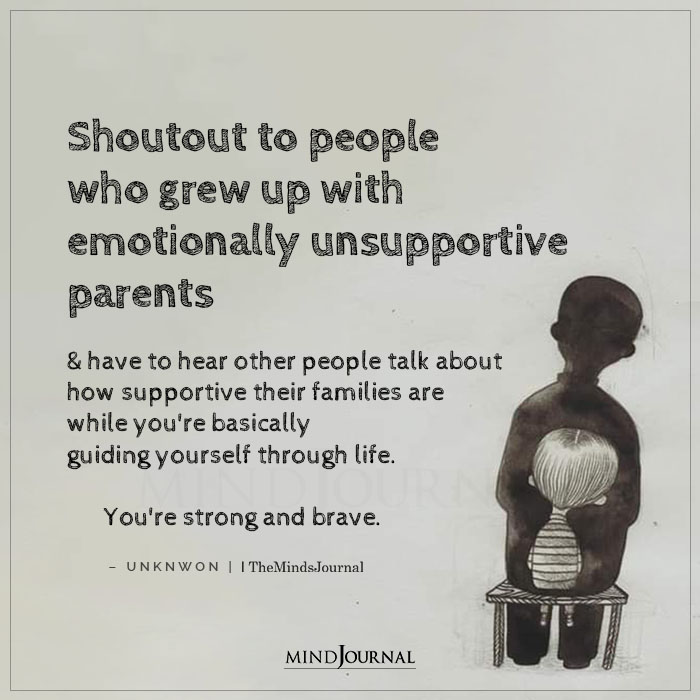
Now was the time to save and love me. Boundaries were key to this. Setting strong ones and sticking to them.
Walking away from abuse and never going back. No matter how hard this was and how much it hurt. I was the Gatekeeper and Protector of my emotional needs now.
Learning how to detach from my parents was crucial too. And not slip back into the familiar, dysfunctional roles of the past.
Establishing new ground rules for our relationship to work. Saying no to them sometimes.
And now here I am. I’ve broken the cycle. I somehow managed not to become an emotionally immature parent myself. Loving me first allowed me to nurture my own children’s needs. I was able to raise them into healthy men.
This post was inspired by my recent reading of this brilliant book: Adult Children of Emotionally Immature Parents: How to Heal from Distant, Rejecting, or Self-involved Parents, by Lindsay C. Gibson, PsyD
Are you the child of emotionally immature parents? How it did affect you as an adult? Let me know in the comments below.
Written by Vivian McGrath Originally appeared on Unbeatable
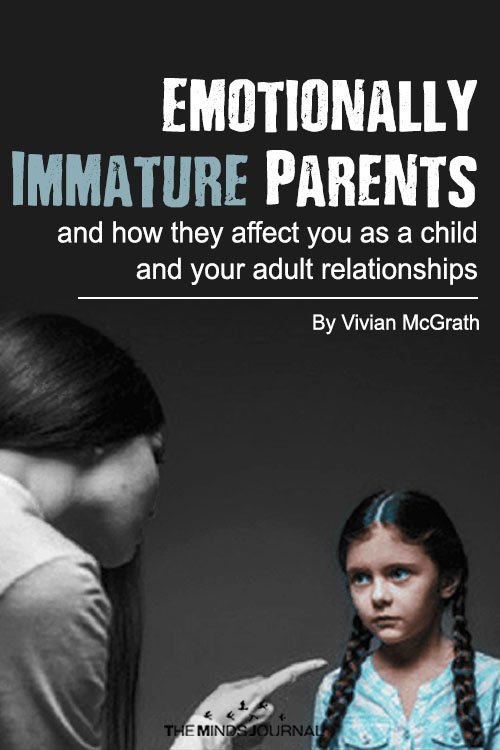
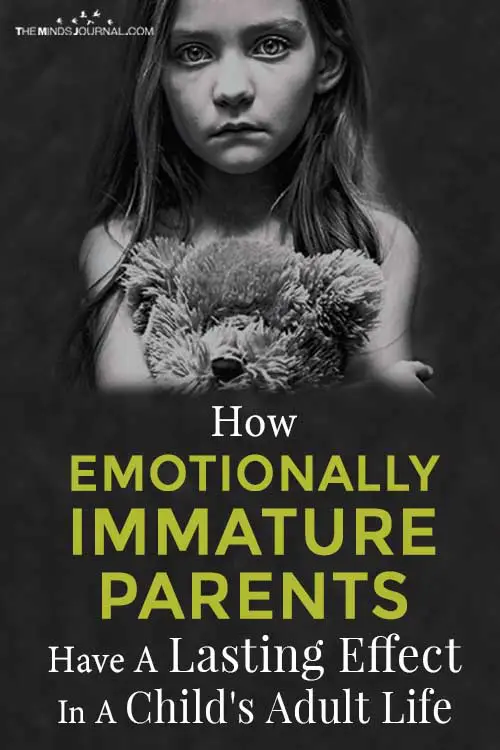
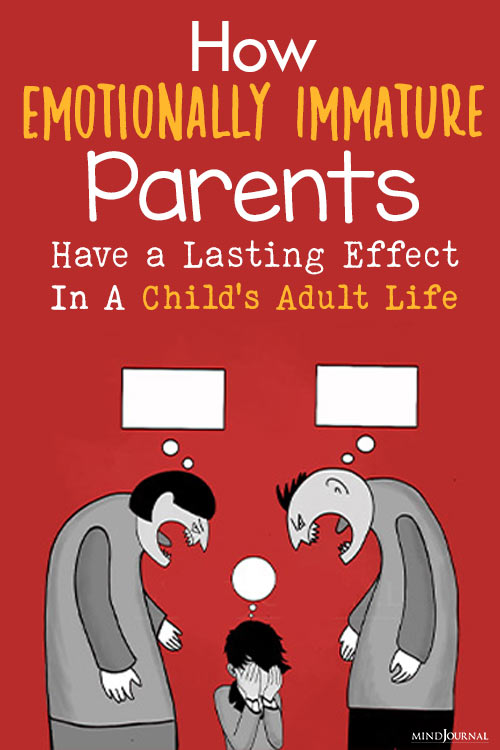
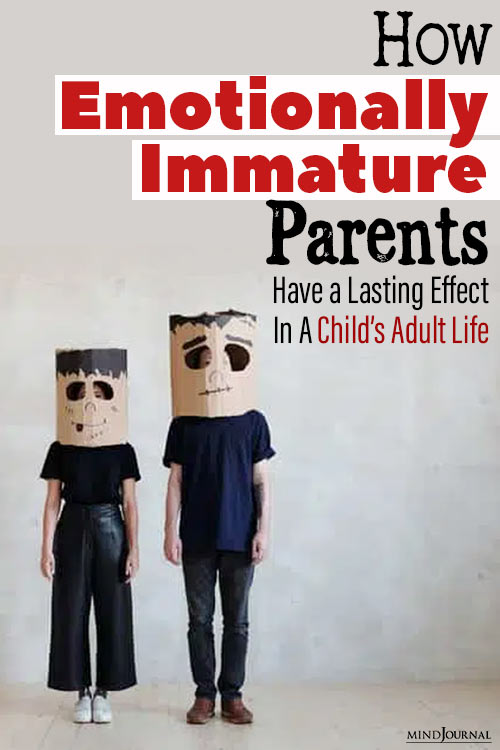
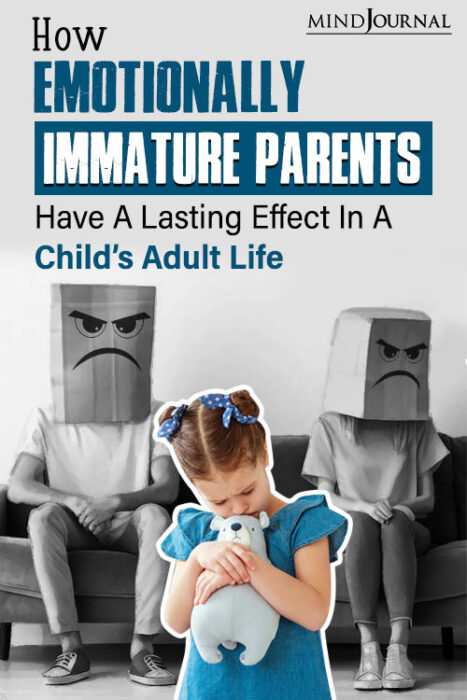
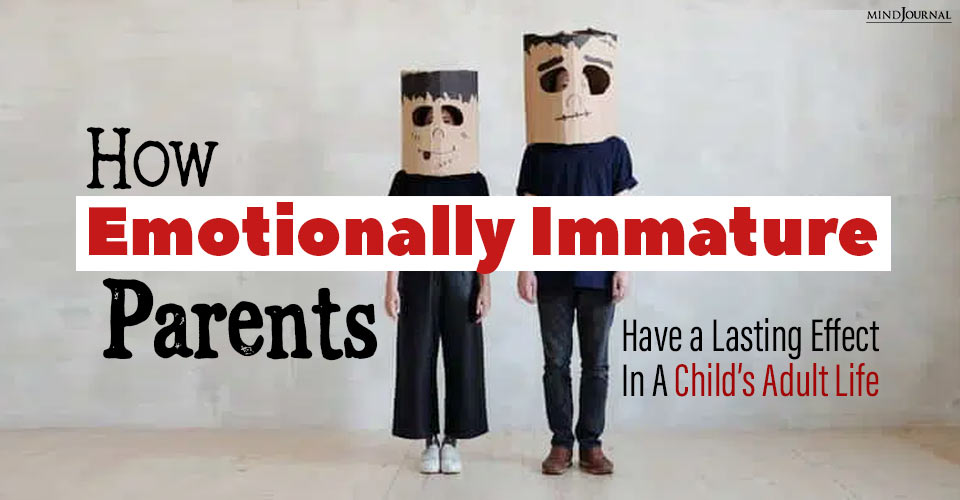







Leave a Reply
You must be logged in to post a comment.